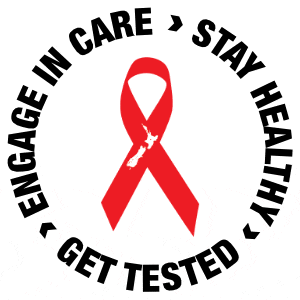In the second of our columns, focused on trying to start a family as gay men in New Zealand, we explore domestic surrogacy.
My partner and I have wanted to have a family from a young age but didn’t meet until our late thirties. It’s a tricky thing because a huge commitment like having children is not something you want to rush, but sadly, ‘time waits for no man.’ After finding ourselves still sitting in the pool for prospective adoptive parents in our early forties (and recently hearing that there wasn’t a single non-kin adoption in NZ in the last six months), we knew it was time to consider surrogacy.
While adoption comes with the lovely altruistic feeling of giving a baby that needs it a safe home, surrogacy means the child could be biologically yours. I’ve heard parents talk about their baby having eyes that look just like their father’s, and as I think about how much my niece reminds me of myself at her age, it doesn’t feel too hard to get on board with the idea of raising a child that is biologically yours.
In NZ, surrogacy must be altruistic, and your surrogate cannot legally be paid to carry your child, so the first key step is to find that surrogate. If you are not lucky enough to have a close friend or family member who is offering to do so, then asking is likely to feel like a heavy and potentially uncomfortable conversation.
Naturally, a number of Facebook groups have started to connect intended parents with surrogates, along with the website Love Makes A Family (lovemakes.family). Love Makes A Family is a great resource (set up by Instagram influencers Mark and Christian @Lovefromyourdads), where intended parents, egg donors, sperm donors, and surrogates can create profiles—giving some background about themselves—and can message each other through the site.
Most of the surrogates we have seen on these sites are offering gestational surrogacy, where IVF is used to create an embryo from donated eggs and the sperm of one of the intended parents (in the case of gay men). Very few profiles we have seen were open to traditional surrogacy, where the surrogate uses her own eggs. As D&S Law Partner Stewart Dalley tells us, “The latter does not require the use of a fertility clinic or ethics committee approval. However, to reduce the risks, it is best practice to mirror the process for gestational surrogacy, where everyone receives counselling and independent legal advice before a pregnancy is achieved.”
Presuming you take the route of gestational surrogacy, once you have an established relationship with a surrogate (with a minimum period of six months being seen as an acceptable timeframe) and have had sperm and health tests yourself to ensure your ability to conceive, it is up to your surrogate to contact a fertility clinic.
There, the process will begin with your surrogate (who must already have had a child or multiple children of her own) going through health screenings, solo counselling sessions, and then group therapy with you. After that, if you are all happy and in agreement, an application for you to try for a baby is then put to the Ethics Committee. The Ethics Committee only meets four times a year, and one fertility nurse told me it can take up to a year for applications to be considered.
Following a granted application, your fertility clinic can help connect you to egg donors—or sperm donors, in the case of lesbian couples. One surrogacy agency told us that the average success rate for an embryo to transfer to a surrogate is 45%, so it is often not successful until the second or third attempt, which all takes time.
These processes are also not cheap. That same fertility nurse told me that a ballpark figure for the entire process is around $60,000, plus legal fees and potential expenses for your surrogate, such as additional travel to clinics and accommodation (if required).
We’d better get saving!




























